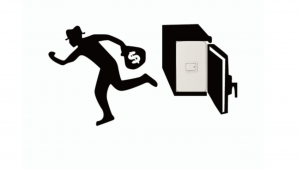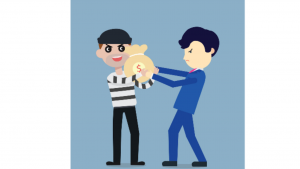Scams are everywhere these days..
Have you been scammed recently? Well, it appears that you are not alone here. According to Australian Competition & Consumer Commission’s (ACCC) statistics, over 161 thousand people reported in 2017 that they had been scammed. The total amount lost to these scams, was over $60 million.
Given the fact that only 20 percent of the crimes were actually reported, this scenario is much more serious than it looks at first sight. Scams, are fraudulent schemes that entice people to submit their money, or valuable information, by offering them some extremely seductive rewards. That’s a short, simple explanation, of what a scam is. I’ll elaborate further shortly.
Traditionally, it took a lot of effort to scam someone. But now, with the help of modern technology, it has become much easier. Scams have become widespread and more popular these days, and by each passing day, they are becoming more problematic. The scams are now well targeted, and more sophisticated. Read on to know more about scams and learn that how you can protect yourself from being scammed.
So What Are Online Scams?
Generally, an online scam is any dubious, or fraudulent online scheme, that is crafted with the full intention of illegally obtaining money, or something valuable (like properties, gold, investments, and the likes) from an unsuspecting individual. These scams can take different forms, and is usually unknown to the scammed victim, until the deed has been done.
The perpetrators of these plots take advantage of an individual’s trust, and susceptibility, by posing as someone else to fit the description of the person they want you to think they are. Some scams are highly targeted, and well laid out to better penetrate, and gain the trust of an individual.
They simply study the personal details of the person, like full name, contact address, close friends and relatives, company and work information, social security number, banking information, marital status, and the likes. These will enable them to select or sieve out victims, based on their personal background, and information.
Why online scams are so popular?
In the past few years, “scam” has become a buzz word in the online market and industry. The cyber criminals are now running countless scams throughout the internet. One of the main reasons for this appalling popularity of scams is the business model of the internet. Most of the websites, that we use, earn through ads. These ads can lead us to a number of scams.
It is possible for you to encounter hundreds of ads on the daily basis, without necessarily knowing the source behind them. This makes it easier for scammers to reach thousands of people. That apart, several hacking incidents in the recent years have also encouraged scammers to widely spread their networks through the internet.
For instance, in 2017, WannaCry and CIA’s data breach, were two of the biggest disasters to cyber security, and nobody got arrested for that. Therefore, hacking incidents in the past, and the business model of the internet, has raised popularity of the online scams.
Why and how is it getting worse?
The threat of scams is getting worse, as the criminals get smarter, by each rising day. The year 2017 felt like the year of scams, and it is getting even worse this year. According to The Independent, fraudulent scams are expected to skyrocket in 2018. The reason behind this striking upswing, is the advent of the easily available intelligent, and advanced technology. Now, the scammers can use Artificially Intelligent (AI) robots to launch large phishing scams that would make the messages (baits) look incredibly realistic.
Now, scammers are also able to launch stubborn ransomware attacks, like those that we had in 2017. That apart, fake news is another great tool for scammers. Now, as most people get their news from social media, it is not that difficult to get the attention of a large number of people. Therefore, with the increasingly intelligent technology, ransom wares and fake news, we have become more vulnerable to scams.
How to protect yourself from being scammed
These days, scammers are not targeting any specific type or background of people. Rather, they are targeting people from all backgrounds and ages. So we are all vulnerable to scams. However, by following these guidelines, you can protect yourself from being scammed:
Learn about latest Scamming Trends
Knowledge is your best weapon against scams. If you are aware of the latest scamming trends, there are far less chances that you will ever get caught in the trap. Therefore, build your knowledge by reading articles and news about scams from some credible sources.
Beware of suspicious E-mails
Look out for emails from unknown persons. First of all, consider scanning your emails with security software. Then, be careful if you don’t know the sender. If there are links or files attached from an unknown person, never open them. Rather, you should immediately delete those emails. Furthermore, government departments, websites, and companies will never ask you to confirm your credentials. So, do not reply if someone asks you to do so.
Keep personal details secured
When it comes to personal details, you should be very careful. Make sure that your mail box is secured. Do not handover your device to others, especially when the credentials of your accounts are saved in your browser. Also, make sure that you don’t share minor details about yourself on social media. That can help scammers steal your identity.
Be careful about bank details or money requests
Do not send your credit card details, or money to sources you don’t trust. Before sending money, make sure that your dealings are secured, and you have some kind of guarantee that you wouldn’t lose your money.
Watch out for deals that are too good to be true
You should not believe any unbelievable opportunity, to make money. Whether you are looking to do business, or for a job, never fall for the offers that seem to be unrealistic. Even if you don’t see anything wrong about the offer, be sure that you search about it online to make sure that it is not a scam.
Beware of online shopping scams
Buy goods from only those websites that you trust. Before trying out a new source, don’t forget to read customer reviews, not only from the website itself, but also from the outside. Also, beware of using virtual currencies, as you don’t get any protection with them. It means that once you have sent money, you can’t claim it back.
Be careful while donating to charities
When you are giving donations to charities, make sure that your money doesn’t end up in the wrong hands. Never believe the organization’s words if you don’t know who they are for real. Check them out on the internet. With the help of fake news, it is not very difficult to get viral in just a few hours.
You may think that an event with millions of views can’t be a fake one, but this is not true. There have been so many examples where certain posts got viral on the internet, but then later turned out to be fake. So, check out the organization carefully before making any donations to it. Having said that, scams have become a big problem for the online market world, and industry.
By each passing day, these scams are becoming more popular and smart, due to the highly intelligent and evolving, advanced technology. Everybody is now vulnerable to scams. So, be sure that you don’t fall for any that’s out there, by following all the mentioned guidelines in this article, and reading more about scams.
 More Types Of Online Scams, And How To Avoid Them:
More Types Of Online Scams, And How To Avoid Them:
- Romance Scams
These are one of the most popular scams being perpetrated online, especially on dating websites and social media platforms like Facebook, Instagram, Twitter and the likes. Here, scammers take advantage of an individual’s emotions by posing as an interested partner in search of “love”. They usually build a believable background profile from scratch.
They will have fake pictures that appeal to the unsuspecting victim, social media accounts with friends, and followers, fake personal information (age, sex, marital status, career, address/location, mobile number, national identity etc.). They present themselves in a way that the victim will never have a clue, anything to gain their trust. Then, they ask for expensive favors. Some even go to the extent of proposing marriage.
How to Avoid Romance Scams
- Always have it in mind that any interaction/relationship that kicks off online is a potential scammer. So proceed them with caution.
- Do not dish out money to anybody you have not met in person, or is not affiliated with someone you know and trust.
- Regulate the level of your trust, and avoid giving people your online account details.
- Be wise, and do not believe everything an individual tells you online. For example, there have been cases of people saying they met with someone online, and then proposed 2 weeks later. I really do not think love works that fast. Especially when you’ve never met the person, one on one, in person.
- Conduct an image search of the individual’s pictures. Chances are, the person probably stole the picture, and is using it falsely. Therefore, an image search will bring up location(s) where this picture has been used.
- If you agree to meet the person face to face, make sure you inform someone, or go with a friend, and select a public location.
- Contact your bank, or financial institution immediately to block, or change your banking details if you know you have fallen prey to this type of scam.

- Lottery Scams
People fall for these type of scams out of greed. This is also a common type of scam. These type of scams may come in form of an e-mail, text message, or phone call, through which you will be informed that you just won the lottery, and the ticket is worth a whole lot of money. The thing is, you might not have registered, or played the lottery. Either way, they’ll still insist and claim that you did it via an online platform.
They may say it is a random selection, based on some undisclosed criteria. Then you might be asked to pay a few amounts of cash through their payment platform, to get your full entitlement, or submit your personal information, which they will eventually use against you. They would have designed it in such a way, that after making the payment, your banking details, and password would be sent to them.
Then they mercilessly clear all your money from your account. The information they will give you about the company, the executives and all, will be so concrete that even a thorough search will not result in any suspicion.
How to Avoid Lottery Scams
- If you did not register for any program online, and you get contacted saying that you did, ignore the information immediately, and break contact.
- Do not open, or reply to any suspicious spam email. Block it immediately.
- Do not open or click any link, or file, attached to a spam email.
- Any message you get that looks too good to be true, ignore it. Money is not easy to come by, and people do not go about dishing out money.
- Do not give anybody your personal banking details. It is private information. Whenever you are required to use it, make sure the merchant you a purchasing from is a certified one.
- Contact your bank, or financial institution immediately, to block or change your banking details, if you know you have fallen prey to this type of scam.

- Phishing or Brand Spoofing
This type of scam is popular in the financial sector, and it involves the cloning of websites of well known financial institutions/banks. These scammers basic goal, is to get you to give out sensitive information unknowingly, thinking that it is from a legitimate company.
They find a way to get to know the type of bank you are using, and then send you an email to change your password. Then they will share a link with the message that will take you to the duplicate site, where you will submit all your details for your “password to change”.
How to Avoid Phishing or Brand Spoofing
- Always verify the authenticity of a website, by taking note of the beginning of the URL, which should start with “https:”
- Most of the time it is advisable to physically enter your bank, or financial institution, to make any type of sensitive change to your banking details, if you are the cautious type.
- Make sure you report any suspicion you have to the bank, or call to confirm that the email was truly sent by them.
- It’s wise to bookmark your bank’s website, and save their verified customer care number(s), in case you want to access their services.
- Contact your bank or financial institution immediately to block, or change your banking details, if you know you have fallen prey to this type of scam.

- Email Spoofing (falsification) Scams
The aim of these types of scams, is to make the victim believe that the email being sent, is from another person. This is one of the reasons why it is important to be cautious of what you share online, because these Con Artists make use of an individual’s information, such as close relative names on social media, co-worker’s names, and the likes, to get to the person. They can send a falsified email, pretending it is from your close relative or a friend, asking for money or your personal details.
These types of scams are pretty easy to perpetrate, because there isn’t a lot of work in trying to forge, or change the details of an email. What they do, is change the sender’s name to someone, or an institution you recognize. Then they construct a convincing message, to lure you into doing what they want.
How to avoid email spoofing (falsification) Scams
- Be cautious of how much information you give out online, like your social media profile, social club profile, dating profile etc.
- Avoid responding to suspicious emails, and try to confirm any information that someone you know sends you, via calling, or be more crafty by giving a false response that will make you know if it is the right person or not.
- This is the most emphasized point. Never provide your personal, business, credit card or account details online, unless you have verified the website authentication.
- Check Overpayment Scams
This type of scams is targeted mainly towards people that sell things online. Here, the scammer poses as a generous buyer by sending a check with an amount that far exceeds their purchase, and then give all sort of excuses as to why they overpaid. Some might say, they made a mistake when writing the check, and ask you to kindly send it back.
Their aim is that you make the refund before you realize that the check they sent is forged. So in a nutshell, the person will get scammed in two ways. The product they sold to the person is lost, and as well as their refund.
How to avoid check over payment scams
- Incorporate a payment system, that confirms payments before products are being shipped or delivered.
- Make sure all checks have been cleared by your bank, before refunding money to anyone.
- Educate your finance department, and staffs on this type of scam.
- Get detailed information about your buyers
- Any form of an over payment should raise a red flag. So be vigilant.

- Business opportunity and Money-flipping Scams
This type of scam, takes advantage of an individual’s interest to make more money. In the case of money-flipping, it centers around greed, and ignorance. Money-flipping scams are very common on social media platforms, where you’ll see numerous, “too good to be true” advertisements.
These advertisements are used to lure potential victims in. You will see advertisements like, “turn $10 to $500 in 20 minutes”, or “earn $10,000 per week working from home”, and the likes. What they really want, is for you to follow their link, make an initial payment via their platform, and your personal banking information, including your password, will be sent to them.
Some may present mouth-watering business opportunities, or investments, that will earn you cool cash, at the comfort of your home. But all these so called business opportunities and investments, are just plots to get your online banking details, and clear your available funds.
Hot to Avoid Fake Business opportunities and Money-flipping Scams
- Do not trust any “too good to be true” business proposals. Take your time to evaluate the business prospect, well before investing.
- Carry out a detailed smart search, before contacting the company, or investing.
- Check for the companies incense, and confirm if it is real.
- Check out the company’s reviews online.
- Do not trust any message that enters your inbox from a friend. There have been increased cases of social media account hacking, where scammers will pose like your friend, and lure you into providing your personal information.
Click Here, for my full review on Money Flipping Scams!!
Conclusion:
There are numerous other types of online scams, that are rocking the internet presently. The one’s we discussed are the main ones, and other forms of scams fall under them. The main aim of this article, is to create awareness by educating you on how these scammers work, and how to avoid being a victim of their illegal activities.
So be smart, vigilant, and never forget to always take precautions before making a decision online.
Tired Of Being Fooled/Scammed Online? Click here To Read My # 1 Recommendation!
Do you have something to say or add, about being scammed? Maybe something something to share from your own personal experience? If you do, please take the time and leave your comment at the bottom. I would love to hear it! Thanks for reading my post, I hope it helped, and good luck with your success!
If you enjoyed reading about scams online, please don’t limit yourself. Feel free to learn “all about” more online scams like:
Paid To Read Email Scam Review
Killer Content System Scam Review
Coffee Shop Millionaire Scam Review
Success With Anthony Scam Review
And Much More..








